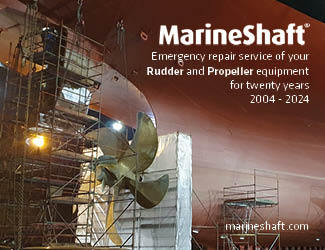The natural gas supplier Gasnor has contracted Det Norske Veritas (DNV) to conduct a risk study for the planned LNG[ds_preview] bunker station in Brunsbüttel. The study will be the basis for the authorities’ approval. Important elements in the risk analysis are a safety screening of the site and a safety analysis for the chosen location in terms of quantitative risk analysis, emergency planning and nautical risk analysis. In addition DNV will be supporting the communication process with approval authority LLUR (»Landesamt für Landwirtschaft, Umwelt und ländliche Räume« / agency for agriculture, environment and rural areas). Brunsbüttel Ports is owner and operator of three ports at Brunsbüttel (Elbehafen, Oilport and port of Ostermoor). The Elbehafen is a multi-purpose port with a water draft of 14.40 m and thus provides ideal conditions for an LNG bunker station.
Furthermore, DNV undertakes a feasibility study for the provision of LNG bunkering facilities at the ports of Antwerp, Zeebrugge and Ghent on behalf of the Flemish government. Next to a risk and safety analysis a market survey, the modelling of the logistics, legal and regulatory requirements belong to the study.
DNV has also contributed to a feasibility study for an LNG filling station infrastructure and test of recommendations’ published in October 2011 by the Danish Maritime Authority and has been involved in a project for a LNG import terminal in Rotterdam.
For the port of Singapore, DNV Clean Technology Centre acts as the project manager of a joint industry project (JIP) in collaboration with 21 partners. The JIP was established by the Maritime and Port Authority of Singapore to investigate the operational feasibility of LNG bunkering. The partners include also DNV Petroleum Services, the Energy Markets Authority, Fearnleys, Gas Supply, Hong Lam Marine, I.M Skaugen, IHI Corporation, Innovation Norway, Keppel Offshore & Marine Technology Centre, Land Transport Authority, Mitsui, Norgas (Asia), NYK Line, Rolls-Royce Marine, Shell, Singapore LNG Corporation, SPT Marine Services as well as Star Cruises.
Currently, there are in total 22 LNG-fuelled ships in operation which are classed by DNV. In addition, DNV has 18 signed newbuilding contracts and three ships scheduled to be converted for LNG fuel. The classification society expects that by 2020 the majority of new ships will use LNG as fuel, especially short-sea ships operating in Emission Control Areas such as the waters of Belgium.


















